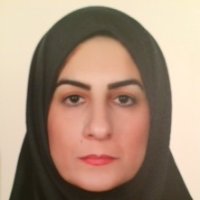The effect of cognitive load theory, multimedia and speech teaching methods on learning students' in science courses
The objective of this study was to compare three methods of teaching based on the cognitive load theory (CLT), multimedia education, and speech on the level of academic achievement and motivation of students in learning the fourth elementary science course, which was done as a quasi-experimental project. The statistical population of the study selected a school from the schools equipped with information technology in Mahmudabad city. The tools of this research include 1. Researcher learning test made in the fourth science course 2. Questionnaire of academic achievement motivation of the Verland et al. (1985) 3. Scale of academic motivation scale (AMS) and 4. Measurement scale of Pass and Van Merriënboer (1993). The results of the questionnaires and the learning test were analyzed using ANOVA. The results showed that the level of learning, the motivation of students who were influenced by teaching based on the cognitive load theory was significantly higher than students who received multimedia education and speech in science. Also, the mean of the cognitive load was in the speech group (4.47), multimedia group (3.82), and in the training group based on cognitive load theory (3.63). This means that students in the teaching group based on cognitive load theory received less cognitive load than students in other groups.
-
Effective of Generative Learning on the Based Load Cognitive Pattern on Math Learning 7th Grade Students
*, Seyyed Abolghasem Seyyedan, Fereshteh Baezzat, Ali Asghar Firouzjaeian
Rooyesh-e-Ravanshenasi, -
The Effectiveness of Direct Current Transcranial Brain Stimulation and Cognitive Rehabilitation on Working Memory and Reading Efficacy of Students with Dyslexia
Hamed Sarhangpour*, Fereshteh Baezzat, Vahid Nejati,
Quarterly Journal of Child Mental Health,



